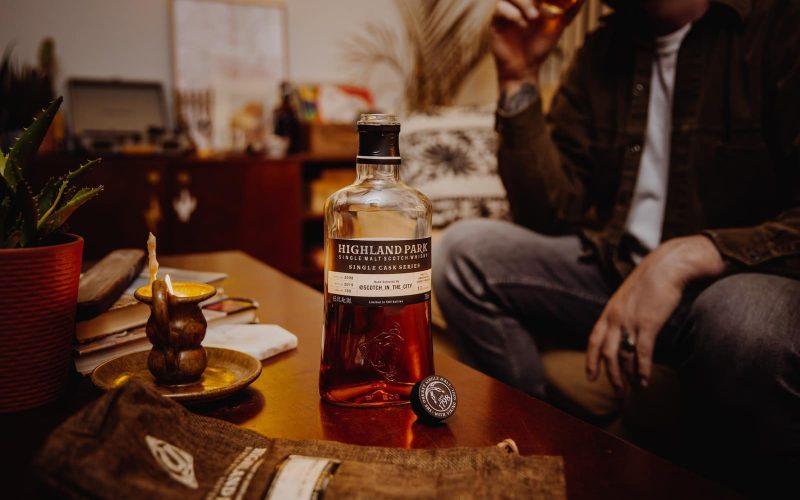When people think of Scotch and whiskey, they usually think both are the same. The truth is Scotch is whiskey. Where it gets weird is the fact that not all whiskey is scotch.
At a glance, the main difference between scotch and whiskey is where production takes place. Scotch is produced in Scotland and Ireland and is usually blended from single malts or blends of malt whiskies.
The term Scotch refers to the region where the whisky is produced. In contrast, whiskey is produced in America and Canada and is usually distilled from grain.
In this post, we’ll explain what makes Scotch and Whiskey different and why you should choose one. The next time you go to a bar and see someone pick scotch over whiskey, you may be able to explain why.
What’s the Difference Between Scotch and Whiskey?
Let’s go over some of the key differences between Scotch and Whiskey.
Production
Scotch is made primarily in Scotland and Ireland and is often blended with other whiskies. Whiskey, on the other hand, is made in America and Canada and is usually distilled from grains such as corn, barley, rye, wheat, and oats.
Blending
Scotch whiskey is typically blended from multiple whiskies, which allows it to be more complex than straight-up single malts. Scotch whiskeys are available in three different mixes: malt scotch, grain scotch, and a mixture of malt and grain scotch.
Whiskey is usually distilled and then blended with other whiskeys. This gives it a lighter taste that isn’t as complex as Scotch.
Flavor Profile
Scotch tends to be sweeter than whiskey. It has a lot of caramel flavors and fruity notes. On the other hand, whiskey is drier and has stronger flavors like vanilla, oak, and smoke.
Distillation Process
Whiskey is made by distilling fermented grains, such as barley, wheat, rye, corn, oats, etc., on a still. A still is a large copper pot with an opening at the top through which steam rises.
This pot removes sulfur-based compounds from the alcohol. It also creates new molecules called esters, which flavor the spirit.
The process of making scotch is quite different. A law dictates how distilleries can produce their own scotch brand.
They must only produce it in a single distillery located in Scotland. Furthermore, the distillers must ferment their mash (a mixture of ground-up grains) using only yeast.
Maturation Process
Another major difference between Scotch and whiskey is the maturation process. Distillers leave scotch to mature for at least three years in oak barrels. During maturation, the flavors of the wood impart themselves into the spirit.
After three years, the scotch will be ready to drink. Distillers keep most of them for eight to ten years or more in the woods, evening out the flavor of this exquisite drink.
On the other hand, whiskey is not aged in oak barrels. Instead, it matures in wooden casks, which allow it to develop more complex flavors.
Malt Whisky vs. Grain Whisky
Scotch and whiskey come from grains. Scotch is made from malted barley, a type of cereal germinating before being used to brew beer.
The process involves soaking barley kernels in water until sprouts appear. Then, the barley is dried with hot air and roasted.
On the other hand, whiskey comes from fermented grains, including wheat, rye, corn, and oats. The fermentation process involves adding enzymes to the grain and allowing them to break down the starches inside.
What is Scotch?
Scotch whisky is one of the world’s best-known spirits. It’s produced mainly in Scotland and Ireland. According to the Scotch Whiskey 2009 regulation , there are various types of scotch, including Single Malt, Blended Malt, Single Grain, Blended Grain, and Blended Scotch Whiskey.
Single Malt Scotch
A single malt Scotch is made exclusively from malted barley. It contains no additives or coloring agents. It’s often called “the purest form of Scotch” because it contains no additives.
Blended Scotch
This type of Scotch is made up of several single malts, each contributing its unique characteristics to the blend. For example, Glenfiddich is known for its sweet, peaty flavors, while Balvenie is famous for its smoky flavors.
Single Grain Scotch
The production of single-grain Scotch whiskey involves using water, malted barley, and whole grains of malted or unmalted cereals. They also add malted barley. The process only takes place at a single distillery.
Blended Grain Scotch
This type of scotch is made by combining two or more single malts. Each malt is distilled separately and then blended. For example, Glenkinchie is a popular blended grain Scotch.
Blended Scotch Whiskey
Blended scotch is a mixture of grain and malt scotch distilled in multiple locations. It is usually bottled straight after blending.
Examples of scotch
There are wide varieties of scotch, but here are some of the most common ones:
The Macallan
The Macallan is a corporate favorite, bringing over two centuries of creativity and knowledge. The results are as near flawless smoothness and balance as top-shelf Scotch whisky can go, but don’t expect to be overwhelmed by flavors.
Bunnahabhain
In 1881, Bunnahabhain entered the game and released a few fundamental opinions. This is good, and sometimes exceptional, Scotch. You could even assume one of the label’s more costly releases is the greatest Scotch.
They balance the richness of the sherry barrel with a beautiful salty flavor, making this Scotch complex.
Johnnie Walker
What began as a moonshine whisky enterprise for John Walker grew into a global powerhouse. Formed in 1820, the company released its first marketable mix in 1865.
Walker’s sons pushed the legendary brand to heights with premium blends, inventive Scotch bottle designs, astute business procedures, and ingenious marketing.
Johnnie Walker Blue, at the top of the list, is maybe the smoothest whisky we’ve ever tasted.
Balvenie
With just a trace of smoke, this Scotch delivers creamy and traditional aromas of fruit and grain. It’s just one of many delicious liquors in this famous business, which isn’t afraid to experiment.
Glen Moray
People frequently ignore Glen Moray’s 18-Year-Old because of its low price; as a result, many people believe it isn’t very excellent! However, it’s one of the greatest single malts you can get for a reasonable rate.
Glen Moray established the distillery in 1897 in one of Scotland’s oldest towns. It has also been producing high-quality single malts on the banks of the River Lossie for over 120 years.
The process is driven by devotion, and the final whisky has an unmistakable sense of proportion and consistency.
What is Whiskey?
Whiskey (sometimes written whisky) is an amber-colored, fermented grain-based distilled alcohol (most often wheat, corn, rye, or barley).
Before bottling, most whiskeys are matured in hardwood casks and contain at least 40% alcohol by volume (ABV). Several sorts of whiskey are often characterized by their region of origin, grain types, blending procedure, or age.
Even though each type of whiskey tastes different, the spirit is often said to be toasty, caramel, spicy, sweet, or warm.
There are wide varieties of whiskeys available today. The differences range from the place of origin to the types of grain used, aging, and blending process. We’ll look at the nine major types of whiskeys below:
Bourbon Whiskey
Bourbon is an American-made whiskey that is usually, but not always, made in Kentucky. Its grain mix or mash bill contains at least 51% corn.
As long as it is American-made whiskey, bourbon must be matured in newly charred oak barrels, which gives it its distinctive taste notes of nuts and caramelized sweetness.
Tennessee Whiskey
Tennessee whiskey is a type of Bourbon. Before aging, distillers filter the whiskey using sugar maple charcoal. This filtering technique, the Lincoln County Process, infuses Tennessee Whiskey with its distinctive flavor.
Single-malt Whiskey
A single-malt whiskey is produced at a single distillery and only uses one variety of malted grain. Unless it’s a single-cask whiskey, a single-malt bottle might contain whiskey from multiple separate barrels.
Rye Whiskey
You know, a Rye whiskey if the mash bill contains at least 51% rye. Rye, like bourbon, must be matured in freshly charred oak barrels if made in the United States. Rye whiskey is characterized by a peppery tingle that sets it apart from other types of whiskey.
Irish Whiskey
To qualify as Irish whiskey, Distillers must manufacture a spirit from malt, cereal grain, and barley, distill it, mature it, and bottle it in Ireland.
Irish whiskey must also age for at least three years in oak barrels. Its malty flavor is most evident when matured in unconventional containers like sherry barrels or rum casks.
Scotch Whisky
Distillation, aging, and bottling of Scotch must all occur in Scotland. According to Scottish law, Scotch must spend at least three years maturing in wood barrels before being sold.
There are five regions in Scotland where malt whiskey is historically made: the Lowlands, the Highlands, Campbeltown, Islay, and Speyside.
Scotch’s smokey flavor comes from peat, a type of thick moss that is burned to dry the malted barley used in the distilling process.
Blended scotch is the best choice for most drinks unless the recipe specifies a specific scotch by manufacturer or type. Opt for a single-malt variety if you prefer to sip your scotch neat or on the rocks.
Canadian Whisky
If you want to call anything “Canadian whiskey,” you must ensure it’s made and matured in Canada and has a minimum of 40% ABV.
Canadian whiskey can have a wide range of flavor profiles due to the use of various flavorings and additions, including caramel.
Japanese Whisky
Japan bottles whisky but doesn’t distill or age it. Some Japanese whiskey is often compared to Scotch, while others harness the distinctive attributes of Japanese wood.
Blended Whiskey
Blended whiskey is a concoction of many distinct whiskies, some of which may have come from separate distilleries.
Examples of Whiskey
You’ll find whiskeys in every price range and style. Here are just a few examples:
Redbreast 12-year
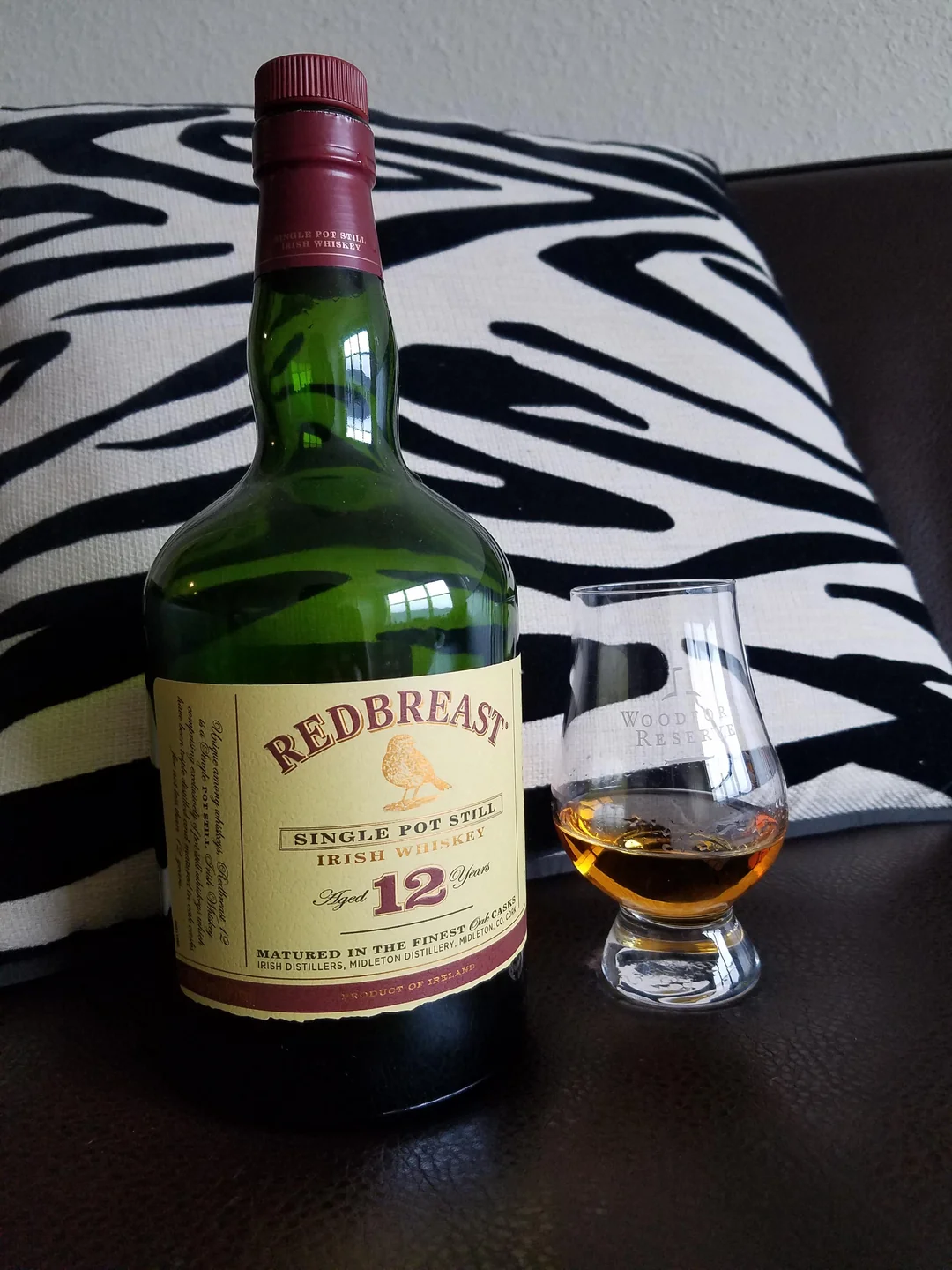
These special barrels impart a delicious scent and a rich flavor to the whiskey, with notes of sherry, fruit, and cream.
Since 1857, they’ve made lush bottles of the world’s best-selling single-pot whiskey. Like other high-quality whiskeys, I should savor this whiskey neat or on the rocks.
Henry McKenna Single Barrel 10-Year
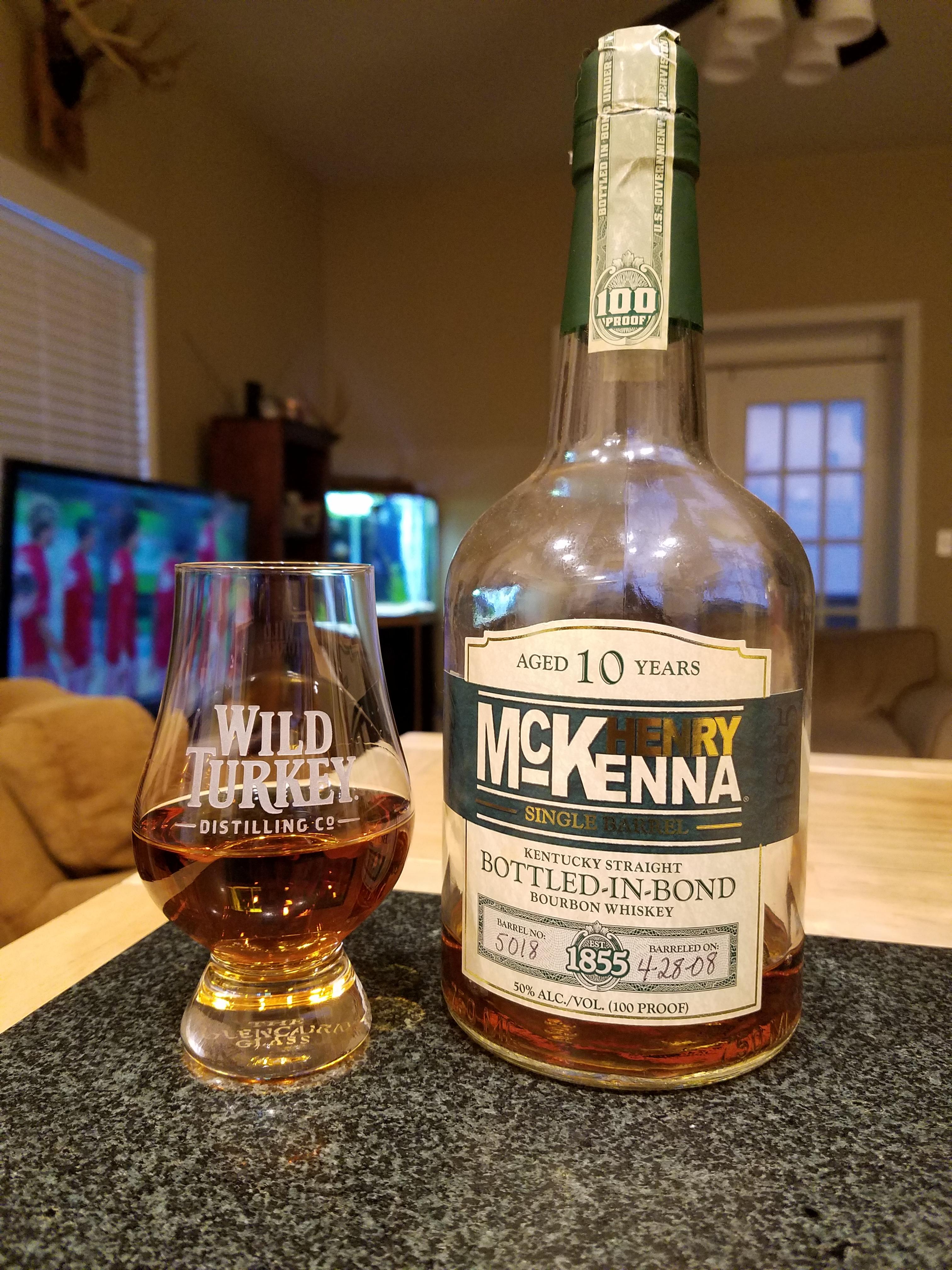
In 2019, this whiskey was named “Best in Show Whiskey,” one of the greatest accolades a brand can get. Henry Mckenna is a product of the Heaven Hill Distillery in Kentucky, recognized for its many award-winning whiskeys.
Although this bottle of Mckenna originates from a single barrel of whiskey that has been matured for ten years, the whiskey isn’t too pricey.
Glenfiddich Gran Reserva 21 Year
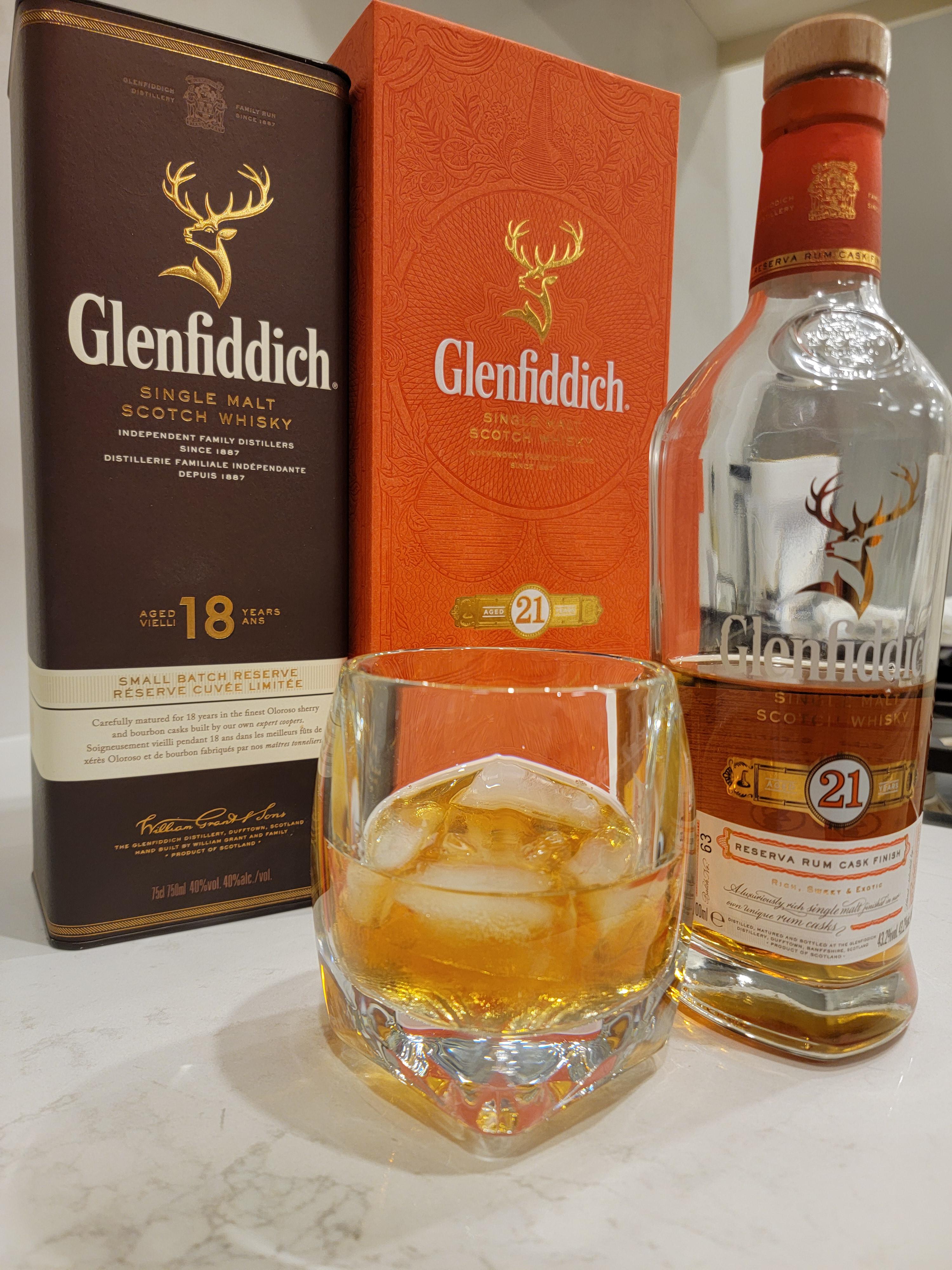
They have reduced the sharpness in this Glenfiddich 21-Year Gran Reserva, allowing you to fully appreciate the whisky’s delicate characteristics.
They age the single malt in Caribbean rum barrels, giving it distinct notes of banana, spicy toffee, and other fruits.
You’re also getting to know one of the world’s most iconic whiskey brands with the Gran Reserva. Glenfiddich is the world’s best-selling single-malt whisky, having been around since 1887.
Jefferson’s Bourbon
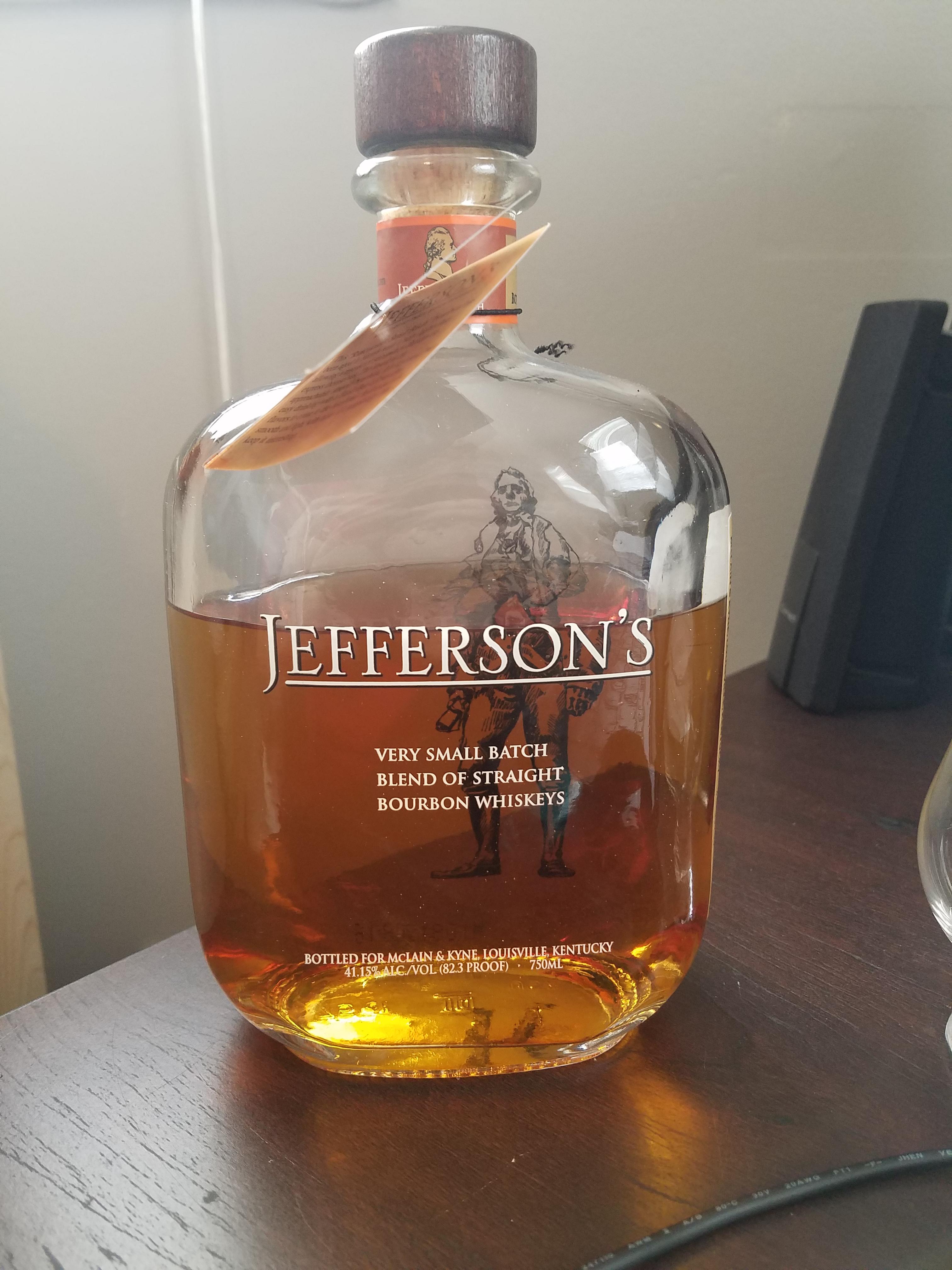
Many whiskey distilleries dabble with fresh woods, combinations, and aging techniques. The taste characteristic of this whiskey is created by exposing it to temperature changes and salty air.
This wild maturing procedure produces a one-of-a-kind, nuanced whiskey. More wood tannin extraction provides scents of vanilla and caramel, but the saline of the ocean air is apparent.
1856 Uncle Nearest
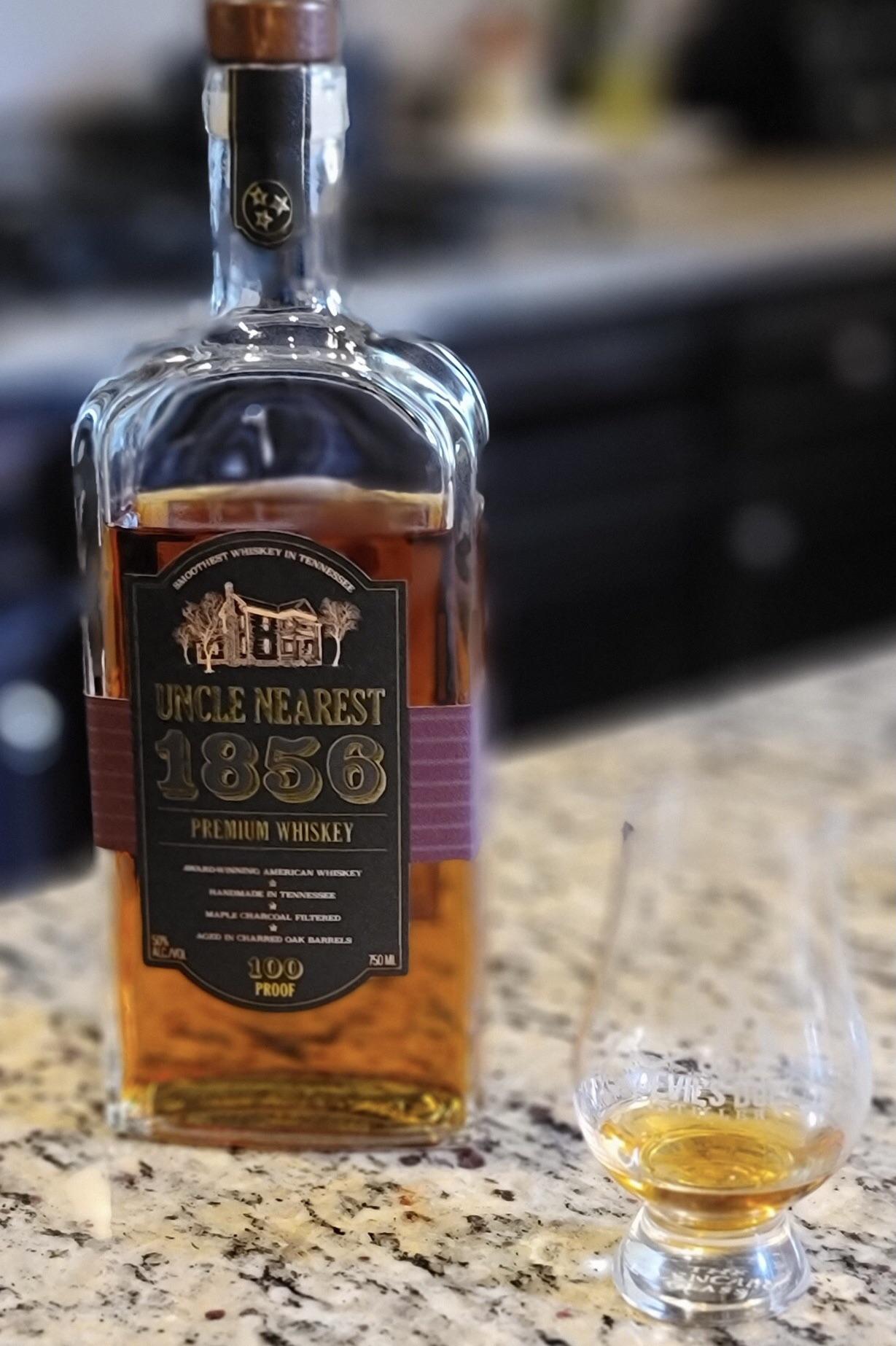
Uncle Nearest 1856 has an interesting backstory to match its exceptional flavor. It is a Black-owned company founded in 2017 and recognized Green’s significance in American liquor.
The whiskey is flowery, fruity, and exceptionally smooth. The whiskey community has praised its fruity, flowery, and incredibly smooth taste, giving it top grades.
Conclusion
So, what’s the difference between Scotch and Whiskey? While both spirits have unique tastes and flavors, they share a number of commonalities.
Whiskey and Scotch are spirits that bring people together. You don’t have to be a connoisseur to enjoy them. Just choose your favorite type of whiskey and drink responsibly!



